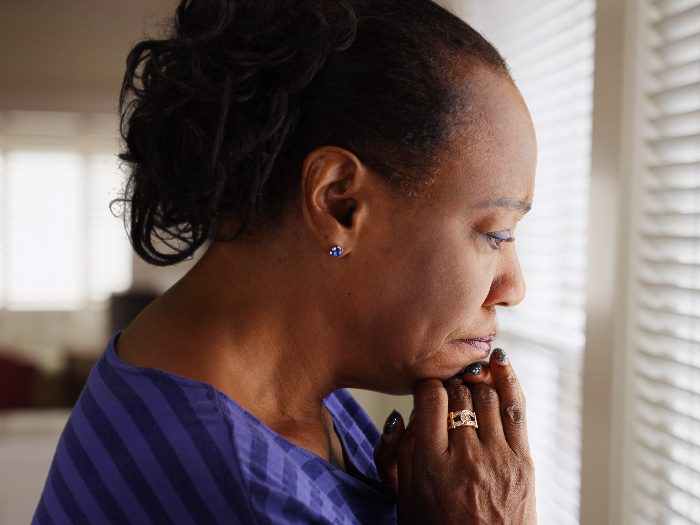For most people in the low-income group, COVID-19 is a double whammy. Not only does it make them more vulnerable to the virus, but lack of adequate resources also stops them from seeking treatment. A study by the Boston University School of Public Health revealed that black, native American, and lower-income people are more vulnerable to COVID-19 risks. Another study by the West Health Institute showed that 14 percent of Americans would avoid seeking medical aid for COVID-19 due to fear of high costs.

Race & income puts you at higher risk for COVID and limits your access to healthcare. Photo Credit: Shutterstock
The Boston University School of Public Health study, published in the American Journal of Preventive Medicine, is based on data from the Behavioral Risk Factor Surveillance System, a nation-wide survey. The study evaluated the proportion of American adults with at least one of the risks associated with severe COVID-19 illness. It categorized people by household income and race/ethnicity. The team found that about 43 percent of American adults were at higher risk of contracting illnesses from COVID-19. [1]
They found racial/ethnic disparities in risks associated with COVID-19 across all age groups. 33 percent of black, 42 percent of native Americans were found to be at a higher risk when compared to 27 percent of white Americans. In the high-risk category, 11 percent of blacks, 18 percent of Native Americans showed multiple risk factors compared to 8 percent of white Americans. The figures were similarly higher for people in the low-income group.
The higher risks make them even more vulnerable because of access to healthcare. Another study by West Health Institute on the rising cost of healthcare in the US revealed that 14 percent of Americans would avoid seeking medical attention if they showed symptoms associated with COVID-19 out of fear of high costs. An additional 6 percent said that they or a family member were denied healthcare for some other illness because of an overburdened healthcare system dealing with the pandemic. [2]
The people most likely to avoid medical aid were non-whites, with a high-school education or less, and with a household income of less than $40,000 a year. This study did not find any strong relation with race but found that low-income levels strongly affect access to medical care.
For the latest updates on COVID-19, please visit the CDC link and the NIH link. [3] [4]
